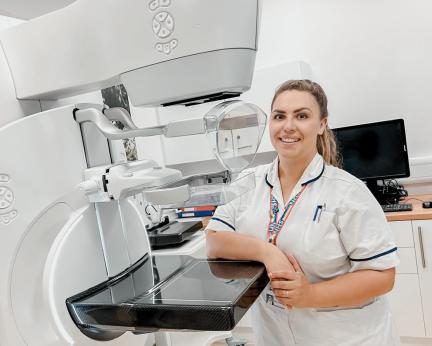There is a history of breast cancer in my family. My personal history with breast cancer inspired me to work in the field. My mother was treated by my department before I started working here, and it’s a privilege to work alongside the team that played such a huge role in her treatment and recovery.
I first saw a job for a trainee assistant practitioner in Colchester's breast unit back in 2018 but I trained at St Georges Hospital in London and The Jarvis Centre in Guildford. After my training, which took about nine months, I fell in love with the profession immediately and knew that breast imaging services was where I wanted to work. I was very lucky that my employer supported by changing my contract so I could go to university to train as a diagnostic radiographer. I was 25 at the time.
I graduated in September 2022, and started my postgraduate certificate in mammography in November 2022. By March 2023, I was qualified mammographer. My colleagues have always been a huge inspiration to me and I’m very lucky to work in a department with mammographers who are always willing to share their knowledge and experience. It’s wonderful to be now working in a profession that’s proven to make an impact on saving the lives of people diagnosed with breast cancer.





